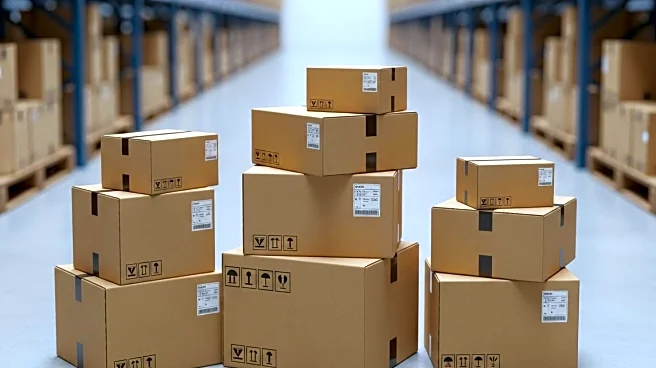What's Happening?
Several major international shipping companies, including DHL's European branch, Australia Post, Japan Post, and Taiwan's state postal service, have temporarily stopped shipping consumer goods to the United States. This decision follows recent US tariff measures that have created uncertainty around the 'de minimis' trade option, which previously allowed certain goods to be duty-free when imported into the US. President Trump signed an executive order in July that appears to ban the use of this option, prompting shipping companies to pause services as they assess the impact of the order. The halt in shipments is expected to affect US businesses that rely on international goods, such as Taiwanese GPUs and Japanese card packs, potentially leading to higher retail prices for consumers.
Why It's Important?
The suspension of international shipments to the US could have significant implications for American businesses and consumers. Companies that depend on foreign goods may face increased costs due to higher duties and taxes, which could be passed on to consumers as higher prices. This development is particularly concerning for online retailers and businesses that rely on international suppliers, as they may struggle to maintain inventory levels and meet consumer demand. The situation also highlights the broader impact of trade policies on global commerce and the potential for increased tensions between the US and its trading partners.
What's Next?
As shipping companies work to understand the specifics of the executive order and adjust their processes, there may be further delays in resuming shipments to the US. Businesses affected by the halt may need to explore alternative suppliers or adjust their pricing strategies to mitigate the impact of higher duties. Additionally, other countries, including India, have indicated they may follow suit, potentially expanding the scope of the issue. Stakeholders will be closely monitoring developments to assess the long-term effects on trade and consumer prices.
Beyond the Headlines
The halt in international shipments underscores the complexities of global trade and the challenges posed by shifting tariff policies. It raises questions about the balance between protecting domestic industries and maintaining healthy international trade relationships. The situation may also prompt discussions about the need for clearer communication and coordination between governments and businesses to avoid disruptions in global supply chains.










